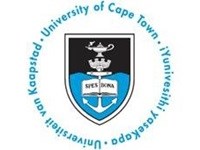
Top stories





Marketing & MediaWarner Bros. was “nice to have” but not at any price, says Netflix
Karabo Ledwaba 1 day

More news

Logistics & Transport
Maersk reroutes sailings around Africa amid Red Sea constraints

















Vice-Chancellor Dr Max Price said the adjusted policy was expected to help advance the university's redress and diversity goals. He said: "We believe the new policy will allow us to achieve higher transformation targets in all UCT faculties. The policy will assist us to increase the number of black students while not being dependent on their race classification in the majority of cases."
The difference in the new policy (which will only apply to applications for the 2016 student intake) is that race will no longer be the only indicator of disadvantage UCT will consider. The additional indicators will include the applicant's home language, the education of his or her parents and grandparents, the applicant's school, and whether the applicant's family depends on social grants. Dr Price said, "We believe that by considering these additional factors, UCT will be able to address the issue of disadvantage and inequality in present-day South Africa on a more intelligent and nuanced basis than by simply considering an applicant's race. Of course, the majority of these disadvantaged students are black."
Dr Price said UCT still believes race is necessary in the admissions policy to acknowledge the ongoing challenges that learners of colour still experience, regardless of their school or socio-economic background. It is also a legitimate basis for redress. He said: "Keeping a portion of the intake to be selected based on race also ensures that we can achieve the targets we set if we do not admit enough black students through the other routes."
The Council's vote to approve the move towards an adjusted admissions policy took place after years of consultation, debate and discussion involving students, staff, alumni, government and others. There are strongly held positions that race should not be used at all, and also that race is the only relevant basis for redress. "I believe the hybrid model balances these competing views and finds a middle path that is appropriate to current circumstances and will hopefully find maximum support across our constituencies," Price said.